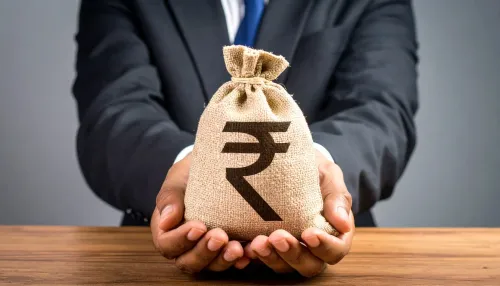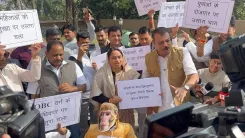Did the Stock Market End a Volatile Session Lower Ahead of the GST Council Meeting?

Synopsis
Key Takeaways
- Indian equity indices ended lower after a volatile session.
- Profit booking was observed as investors turned cautious.
- Strong macroeconomic data initially boosted the market.
- Banking stocks were the primary contributors to the decline.
- Broader indices showed resilience during the session.
Mumbai, Sep 2 (NationPress) The Indian equity markets concluded the trading day in a negative zone following a day characterized by significant fluctuations. Initial optimism surrounding the GST rationalization and a supportive SCO summit propelled market activity during early hours, but gains were lost due to profit-taking as investors adopted a cautious approach in anticipation of the upcoming GST Council meeting and the expiry of F&O contracts.
The Sensex wrapped up the day at 80,157.88, reflecting a decline of 206.61 points or 0.26 percent. The 30-share index had opened with a notable gap-up at 80,520.09, up from the previous session's close, driven by positive sentiment from the SCO summit and strong GST collection figures. It even reached an intra-day peak of 80,761.14 before succumbing to profit booking.
The Nifty index concluded at 24,569.60, down by 45.45 points or 0.18 percent.
Vinod Nair, Head of Research at Geojit Investments Limited, commented, "Domestic stocks reversed their early gains fueled by robust macroeconomic data, ultimately closing lower due to profit-taking amid heightened caution ahead of the GST Council meeting and F&O expiry, with banking stocks leading the downturn."
Sugar shares experienced a surge following relaxed ethanol regulations, and export-focused companies saw gains following dovish comments from the U.S., which rekindled trade optimism. Nonetheless, investors remain cautious, closely monitoring domestic consumption trends amidst global uncertainty.
Leading gainers included Mahindra and Mahindra, ICICI Bank, Asian Paints, Kotak Bank, Tata Motors, Trent, Ultratech Cement, L&T, HDFC Bank, Bharati Airtel, and Axis Bank. PowerGrid, NTPC, Tata Steel, Hindustan Unilever, BEL, Bajaj FinServ, Eternal, and ITC also managed to close positively.
Most sectoral indices fell into negative territory after showing positive trends for the majority of the trading day. Nifty Auto dipped by 75 points or 0.29 percent, Nifty Bank decreased by 341 points or 0.63 percent, and Nifty Fin Service fell by 170 points or 0.66 percent. Meanwhile, Nifty IT remained stable, while Nifty FMCG surged 631 points or 1.12 percent.
Broader market indices maintained strength throughout the session, with Nifty Midcap rising by 151.90 points or 0.27 percent and Nifty Small cap 100 increasing by 93 points or 0.53 percent, while Nifty 100 closed flat.
The rupee traded slightly higher at 88.16, reflecting a 0.05 gain as optimism surrounding India's GST reduction initiative is expected to bolster consumption and mitigate some tariff pressures.
Jateen Trivedi from LKP Securities noted, "Despite this, the dollar remained strong at 98.30, exerting overall pressure on emerging currencies, while crude oil prices traded positively at $65.95, potentially introducing some short-term weakness for the rupee."
With foreign institutional investors (FIIs) continuing to be cautious and persisting in their selling strategy, volatility is anticipated to persist. Trivedi indicated that the trading range for the rupee could be seen between 87.85 and 88.40 in the near term.










